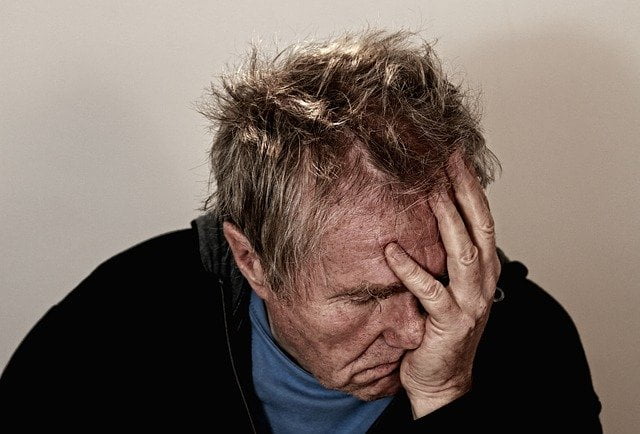- Home
- Types of Addiction
- Alcoholism and Alcohol Dependency
- Dual Diagnosis & Alcohol Addiction
Dual Diagnosis & Alcohol Addiction
While the majority of people are aware of the impact of alcoholism, and of different mental health conditions, most people don’t fully understand the ways in which the two are linked.
It is hard enough to live with alcoholism, or a mental health disorder like depression, anxiety or OCD.
It is even harder to live with both, especially when the people around you struggle to understand what you’re going through.
For these reasons, it is vital that more people are educated and informed about the link between mental health and alcohol addiction, and what it means.
Below we have an overview of what a dual diagnosis is, and why it is relevant to alcohol addiction.
What Is A Dual Diagnosis?

When a person has simultaneous diagnoses of addiction and a mental health disorder, this is called a dual diagnosis.
For example, a person living with alcoholism might also be diagnosed with depression or anxiety.
The dual disorders have their own specific signs and symptoms, but there can be overlap with signs of alcoholism, which often leads to one or the other being ignored.
However, if one disorder is ignored, it can continue to disrupt the progress made on the other, and it can carry on damaging your social life, your career and your general wellbeing.
Why Is It Important To Recognise A Dual Diagnosis?

Often, the addiction to alcohol and the mental health disorder feed into and fuel each other.
For example, if someone is living with alcoholism and anxiety at the same time, the two interact in complex ways and each can make the other worse.
For this reason, it is important that the disorders aren’t treated separately, independent of each other.
Often, when a dual diagnosis is present, it is impossible to address the issue of alcoholism without addressing the other mental health disorder.
Instead of trying to separate the two disorders and deal with them individually, they both need to be considered equally important and related.
When they’re recognised as two connected disorders, you can make progress on both your alcoholism and your other mental health disorder at the same time.
Ultimately, with the help of a dual diagnosis, you can live a life free of alcohol addiction, and able to manage your other mental health disorder in a way that no longer disrupts your life.
Which Mental Health Disorders Are Associated With Alcohol Addiction?

There are many mental health disorders that can be linked with alcohol addiction and recognised as part of a dual diagnosis.
Below is some information on the most common co-occurring disorders, and why they are linked to alcoholism.
Depression

Depression is perhaps the most common mental health disorder and is widely understood by the majority of the population.
The stigma associated with depression is lessening as people are becoming more educated on the subject, which is useful for dual diagnosis as it is also becoming easier to recognise in yourself and others.
Unsurprisingly, depression is also the most common mental health disorder to be diagnosed alongside alcoholism, forming one half of a dual diagnosis.
Depression is often ‘self-medicated’ through the consumption of alcohol as you attempt to alleviate your symptoms.
However, alcohol can greatly worsen the symptoms of depression both in the short and long term.
Anxiety

It is widely known that alcohol can reduce anxiety in the short term.
It often dulls feelings of stress, and can initially help you to feel more relaxed.
Therefore, it might seem like one of the more obvious mental health disorders present in a dual diagnosis.
People with anxiety can find it hard to live their life without alcohol if they have become used to using it as a crutch to avoid their anxiety, and this is when alcoholism often begins to develop.
OCD

A significant proportion of people who live with OCD are also suffering from the effects of alcohol abuse.
Alcohol can seem attractive to someone with OCD, as its impact on the brain can take your mind away from your OCD’s symptoms and act as a distraction.
Like anxiety, it can then become difficult to pull away from the use of alcohol, making the development of alcoholism highly likely.
Dissociative Identity Disorder

Dissociative identity disorder is a widely misunderstood mental health condition and one which attracts a lot of stigma and prejudice.
In reality, the disorder is characterised by the presence of one or more personality states or alters, which a person can shift between leading to confusion and gaps in memory.
Unfortunately, the condition is also linked with alcoholism, and excessive drinking can be a way of dealing with the stress caused by the condition.
Alcoholism can be difficult to separate from dissociative identity disorder as both can lead to gaps in memory, and drinking can lead to more frequent shifts between personality states.
Which Comes First: Alcoholism Or The Mental Health Disorder?

A common question asked by people wanting to learn more about the topic of dual diagnosis is, which condition comes first?
The answer is never simple, as in almost all instances the two conditions interact in complex ways.
Alcoholism can be a trigger for depression, or it can result as a way of dealing with depression.
In either instance, depression and alcoholism both make each other worse, and can lead to longer-term severe mental health issues.
The same can be true for OCD, anxiety and dissociative identity disorder, which often feed into alcoholism.
This can begin to create a vicious cycle of mental illness where both conditions make the other one worse.
For these reasons, it is hard to establish which mental health condition came first, and the answer will be different in every case of dual diagnosis.
What Are The Symptoms Of Dual Diagnosis?

There is no single list of symptoms that applies to everyone with a dual diagnosis.
However, there are some commonalities which is it worth looking out for which could point to alcoholism with another mental health condition.
- Erratic, unpredictable behaviour that seems out of character
- A decline in the ability to conduct basic responsibilities, like personal hygiene and work commitments
- A reduction in motivation and energy to engage with anything outside of alcohol
- Withdrawal from social circle, and isolation from family and friends
How Do You Treat A Dual Diagnosis?

To treat a dual diagnosis, both the alcoholism and the mental health condition need to be addressed simultaneously.
This often occurs through an admission to rehabilitation services and through the associated treatments.
The rehab will focus on your alcoholism: you will be supported as you deal with any withdrawal symptoms, negative influences will be removed,and you will develop coping strategies and relapse prevention plans.
At the same time, you will undergo therapy with a qualified professional.
This therapy will consider your other mental health condition.
It will examine the condition’s causes, what contributes to ‘flair ups’, and how the condition impacts your behaviour.
The therapy might be Cognitive Behavioural Therapy, Dialectical Behavioural Therapy, Motivational Enhancement Therapy, Holistic Therapy or any number of other treatments.
The goal of the treatment will be to get your alcoholism under control, and with an understanding of your mental health condition and what you can do to manage it.
Dealing With The Stigma Of A Dual Diagnosis

Even after treatment, a dual diagnosis can feel like a heavy burden to bear.
You might feel judged by those around you, including family or friends.
The best way to deal with this is to be open about your experience, and talk about your dual diagnosis with those close to you.
Answer any questions, clear up confusion and you’ll find that those around you become more understanding as they support you through your recovery journey.
Getting Help Today

If you’re suffering from both a mental health issue and alcoholism, the best thing you can do is get help.
These conditions can have a devastating impact on both your life and the lives of your loved ones.
Today, more than ever before, we know how to help people overcome these issues and lead happier, healthier lives.
For a professional, confidential and entirely free introduction to the treatment options available to you, reach out to us today.


